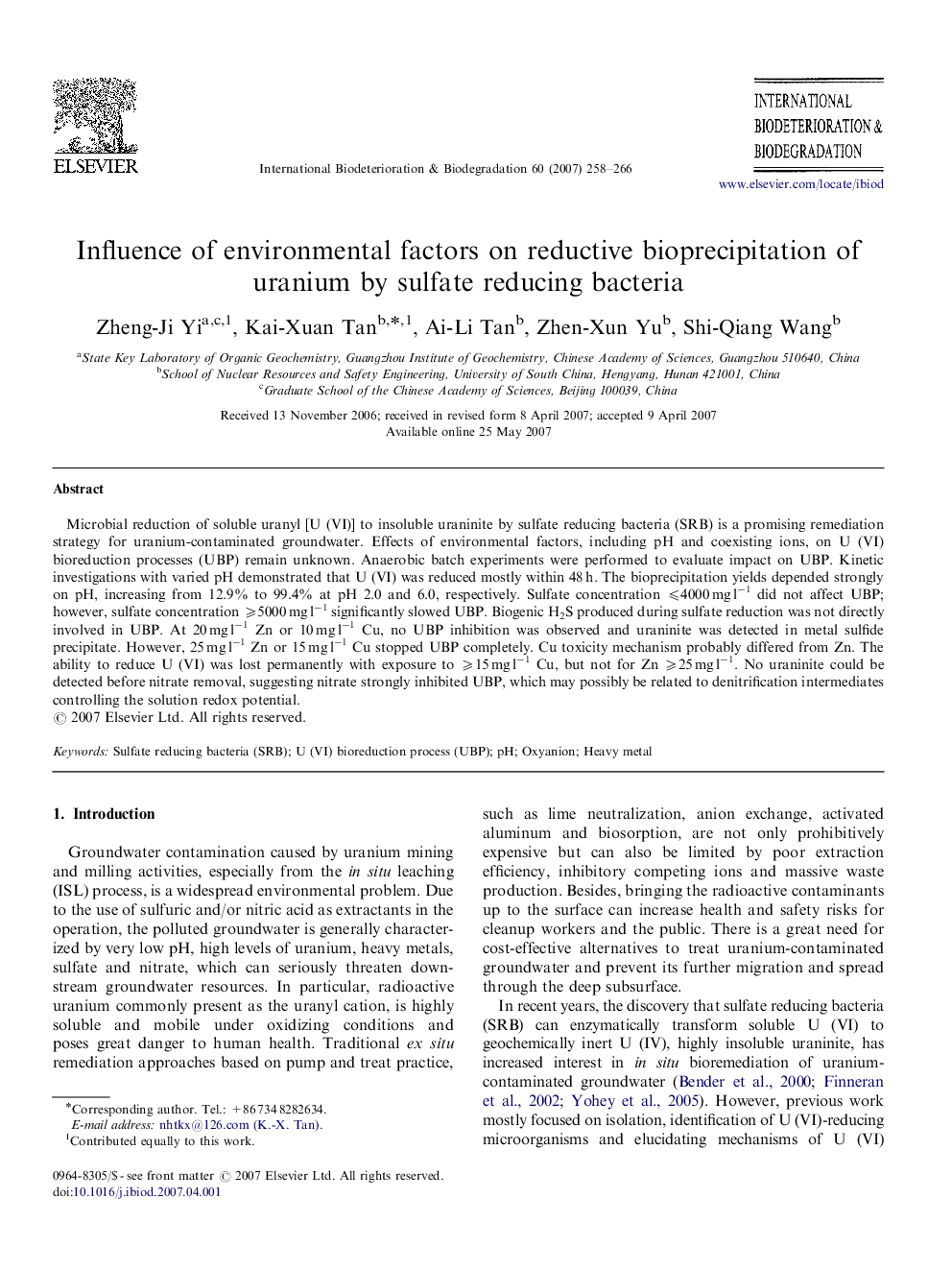| کد مقاله | کد نشریه | سال انتشار | مقاله انگلیسی | نسخه تمام متن |
|---|---|---|---|---|
| 4365815 | 1616349 | 2007 | 9 صفحه PDF | دانلود رایگان |
عنوان انگلیسی مقاله ISI
Influence of environmental factors on reductive bioprecipitation of uranium by sulfate reducing bacteria
دانلود مقاله + سفارش ترجمه
دانلود مقاله ISI انگلیسی
رایگان برای ایرانیان
موضوعات مرتبط
علوم زیستی و بیوفناوری
علوم محیط زیست
علوم زیست محیطی (عمومی)
پیش نمایش صفحه اول مقاله

چکیده انگلیسی
Microbial reduction of soluble uranyl [U (VI)] to insoluble uraninite by sulfate reducing bacteria (SRB) is a promising remediation strategy for uranium-contaminated groundwater. Effects of environmental factors, including pH and coexisting ions, on U (VI) bioreduction processes (UBP) remain unknown. Anaerobic batch experiments were performed to evaluate impact on UBP. Kinetic investigations with varied pH demonstrated that U (VI) was reduced mostly within 48 h. The bioprecipitation yields depended strongly on pH, increasing from 12.9% to 99.4% at pH 2.0 and 6.0, respectively. Sulfate concentration ⩽4000 mg lâ1 did not affect UBP; however, sulfate concentration ⩾5000 mg lâ1 significantly slowed UBP. Biogenic H2S produced during sulfate reduction was not directly involved in UBP. At 20 mg lâ1 Zn or 10 mg lâ1 Cu, no UBP inhibition was observed and uraninite was detected in metal sulfide precipitate. However, 25 mg lâ1 Zn or 15 mg lâ1 Cu stopped UBP completely. Cu toxicity mechanism probably differed from Zn. The ability to reduce U (VI) was lost permanently with exposure to ⩾15 mg lâ1 Cu, but not for Zn ⩾25 mg lâ1. No uraninite could be detected before nitrate removal, suggesting nitrate strongly inhibited UBP, which may possibly be related to denitrification intermediates controlling the solution redox potential.
ناشر
Database: Elsevier - ScienceDirect (ساینس دایرکت)
Journal: International Biodeterioration & Biodegradation - Volume 60, Issue 4, 2007, Pages 258-266
Journal: International Biodeterioration & Biodegradation - Volume 60, Issue 4, 2007, Pages 258-266
نویسندگان
Zheng-Ji Yi, Kai-Xuan Tan, Ai-Li Tan, Zhen-Xun Yu, Shi-Qiang Wang,